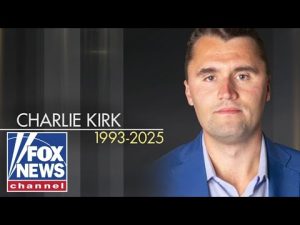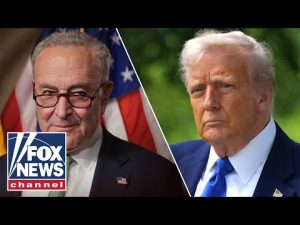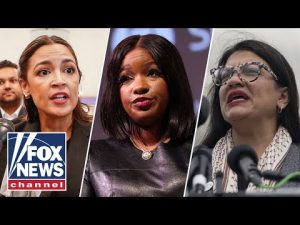In the recent broadcast, the spotlight shone bright on an extraordinary gathering that emphasized the profound intersection of faith and politics, thanks to figures like Charlie Kirk and his long-term pastor, Rob McCoy. It’s not every day that national news spends hours focusing on a stage dedicated to the Mighty above, but this was no ordinary day. For those who find it astounding, welcome to seeing what embracing faith through the lens of American liberty can achieve. Pastor McCoy, deeply connected to Kirk, spoke about the remarkable journey Kirk undertook, using politics as a gateway to lead more souls towards a spiritual awakening.
Charlie Kirk, known for his venture to intertwine belief and governance, viewed politics as an invitation to discover faith, akin to leading a thirsty man to water. His approach wasn’t merely about stirring a pot of political discourse; it was about helping folks, especially the younger generation, paddle the streams of liberty to find their way to a higher power. This might sound like a high endeavor, yet Kirk was steadfast in his conviction, turning what some dismissed as mere political banter into a pathway for spiritual enlightenment. Pastor McCoy couldn’t be clearer in applauding Kirk’s strategy in reigniting an understanding and appreciation of America’s foundational values.
This hefty dose of faith wasn’t just about charming speeches. It was a call to action for both burgeoning and seasoned believers alike. Pastor McCoy encouraged newcomers to faith to dive into it wholly — to join Bible-believing churches that feed the soul like Sunday morning pancakes after a long week. Pastor McCoy knows a thing or two about serving up such soul food. For him, it’s about fanning a flame in young hearts that have been taught to mock America’s early architects. Instead, Kirk and McCoy educate these minds to cherish their freedom of speech, assembly, and worship—rights serving as cornerstones of the great America house.
But let’s get back to Pastor McCoy’s spirited viewpoint—he makes a compelling argument that perhaps the pulpits have become too timid. Accusations of being “too political” seem to have rocked church leaders back on their heels. However, in McCoy’s playbook, politics is the highest form of community engagement—a savvy mix of morality and sociability. If you can look a congregation member in the eye and avoid talking about the state’s role in their lives, you’d better have a good reason to wish them well as they leave clueless about the societal battles impacting their backyards.
And let’s not forget the poignant moment when Pastor McCoy paid tribute to Erika Kirk, comparing her strength to that of 20th-century missionary widow Elisabeth Elliot. It’s not every day someone rises above personal trials with the prowess to propel an entire nation toward stronger faith. Erika exemplified forgiveness, an act so powerful it helps cleanse the deepest wounds, not letting bitterness poison the mind. Her unfaltering grace is a testament to the beauty of letting go and placing the outcomes in divine hands—an act Kirk’s followers are encouraged to emulate.
In a world where mixing faith with politics often leads to controversy, Charlie Kirk and Pastor Rob McCoy provide a striking example of how these realms can blend to foster a movement rich in values, enlivening a generation thirsting for meaning beyond the superficial ties of daily discourse.







